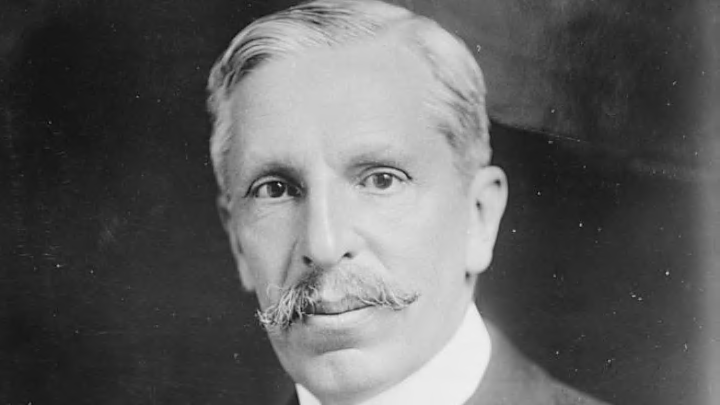In October 2022, Liz Truss resigned from her position as the Prime Minister of the United Kingdom after just 50 days in office. It was the shortest term any UK Prime Minister had ever served. But short-serving world leaders are not quite as uncommon as one would think. From coups to suicides and massacres, the assumption of power was both brief and difficult for these historical figures, too.
1. King Louis XIX
In 1830, King Louis XIX assumed France’s throne after his father, Charles X, abdicated. But his rule—which some debate the legitimacy of, as he never officially reigned over France—would be extremely short lived: It only took about 20 minutes for King Louis XIX to follow in the footsteps of his father by abdicating the throne at the request of a mob of angry protestors.
2. King Luís Filipe
King Luís Filipe of Portugal shares a record with King Louis XIX for serving the shortest amount of time as king. On February 1, 1908, his father was assassinated, at which point he briefly assumed the throne. But King Luís Filipe was also mortally wounded during the attack; most estimates suggest he died about 20 minutes after his father. Because his reign was so short, its legitimacy remains a matter of debate.
3. Siaka Stevens
Siaka Stevens became the Prime Minister of Sierra Leone on March 21, 1967, but his initial success was short-lived: Later that day, one of Stevens’s rivals successfully overthrew him just hours after he assumed the position.
Unlike many other short-serving world leaders, his story has a happy ending. Stevens led a coup and returned to serve as Prime Minister the following year, and his second term was extremely successful. He ultimately became Sierra Leone’s first democratically elected president, serving the country for about 17 years.
4. Hezekiah Ochuka
On August 1, 1981, Hezekiah Ochuka led a coup that landed him in charge of Kenya for about six hours. But he paid a grave price for his short reign. Ochuka was hanged when his attempt to overthrow President Daniel arap Moi ultimately failed. More than 100 soldiers and 200 civilians died in the process of his coup.
5. Pedro Lascuráin
Pedro Lascuráin became Mexico’s 38th president on February 19, 1913. He was the successor to President Francisco Ignacio Madero González, who was forcefully removed from office and later executed. Lascuráin served for less than an hour before Mexican General Victoriano Huerta took power. The only thing Lascuráin accomplished was appointing Huerta—who had organized the coup that ousted Madero—as his successor.
6. Joseph Goebbells
After Adolf Hitler’s death in 1945, Joseph Goebbells briefly assumed the role of German Chancellor. The day after he assumed the position, he and his wife poisoned their children and died by suicide in Hitler’s bunker.
7. Pedro Carmona
Pedro Carmona attempted a coup against Venezuelan dictator Hugo Chávez in 2002. Initially, his efforts were successful. But he was removed from power after just 36 hours, and Chávez reclaimed his position.
8. Carlos Luz
After Brazilian president Getúlio Vargas died by suicide in 1954, a number of different people held his former position over the course of 16 months. Carlos Luz was the second of three replacements. He quickly became Brazil’s shortest-serving president after he was removed from the presidency about three days after assuming the position.
9. King Dipendra Bir Bikram Shah Dev
In 2001, Prince Dipendra Bir Bikram Shah attacked the royal family, shooting, among others, his mother and father before attempting to die by suicide. But the bullet didn’t kill him immediately. Shah, who became king as soon as his father died, spent his entire reign in a coma. His uncle ascended the throne after he was declared brain dead.
According to some sources, the massacre occurred over an argument about Shah’s choice of a bride. Others suggest the massacre could have taken place over a disagreement in transitioning toward a constitutional monarchy.
10. Frank Forde
In 1945, Australia’s Prime Minister, John Curtin, died after a stint of poor health, launching Frank Forde into the role. But after just eight days in office, an election was held that removed Forde from office. He was succeeded by Ben Chifley.
